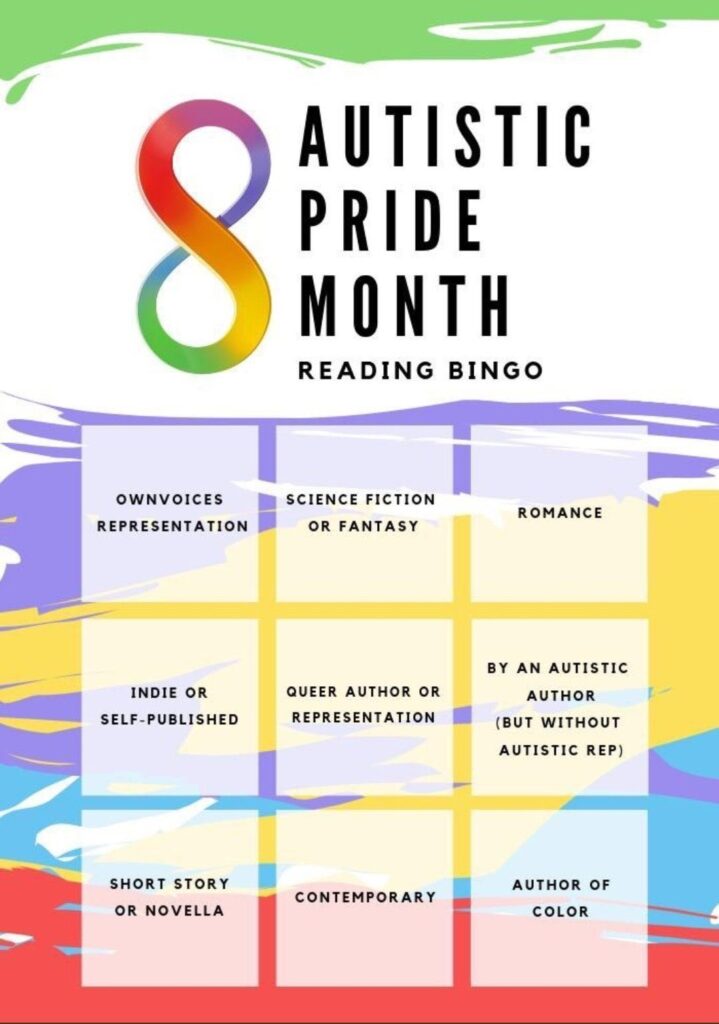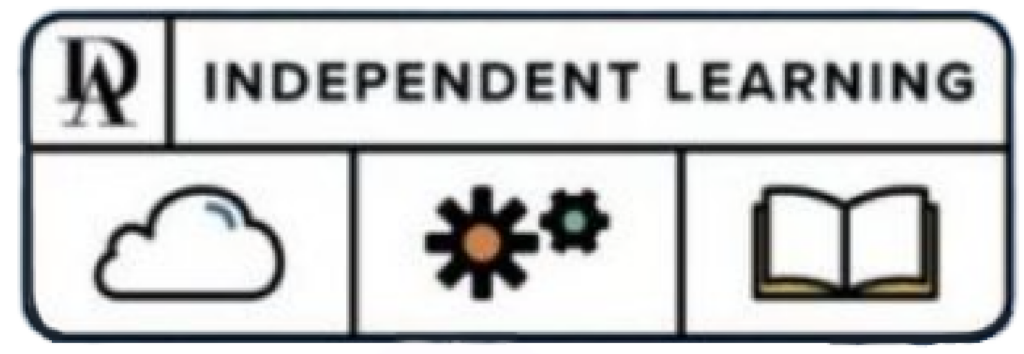Learning more about autism can come in so many forms, whether it’s reading a biography dedicated to the subject to engaging in a popular TV show with a well-written autistic character—increasing the real people you meet and learn about is incredibly important to developing a full and empathetic picture of the autistic community!
Also, considering Books/Movies/TV was one of the top ways students and teachers at my school are coming across Autism (according to a survey conducted of 150+ students and 70+ teachers), I felt that it was important to suggest some good sources of Autism representation. While I double-checked my perceptions of the Autistic representation in each of the following with their reception by the broader Autism community, keep in mind that the Autistic community is incredibly diverse and, in the end, this is only one person’s opinion, and a lot of the “good” vs “bad” of representation depends on interpretation.
With that said, here is some bad and good Autism representation BINGO to help you spot not-so-good examples of Autism in the media you consume and find good examples of Autistic literature to read…

… and enjoy this short list of “good” representation explanations.
BOOKS
* indicates Middle-Grade (still worthwhile reads!)
Non-Fiction Books
- We’re Not Broken by Eric Garcia
- Unmasking Autism: Discovering the New Faces of Neurodiversity by Devon Price
- Women and Girls with ASD by Sarah Hendrickx
- Autistic and Black by Kala Allen Omeiza
- Same but Different: Teen Life on the Autism Express by Holly Robinson Peete (talk-show host), Ryan Elizabeth Peete, RJ Peete
- The Awesome Autistic Go-To-Guide: A Practical Handbook for Autistic Teens and Tweens by Yenn Purkis and Tanya Materman
- Funny, You Don’t Look Autistic: A Comedian’s Guide to Life On the Spectrum by Michael McCreary
- The Spectrum Girl’s Survival Guide: How to Grow Up Awesome and Autistic by Silena Castellon, Foreword by Dr. Temple Grandin*
Realistic Fiction
- Afrotistic: A Novel by Kala Allen Omeiza
- Real by Carol Cujec and Petyon Goddard*
- Queens of Geek by Jen Wilde
- A Kind of Spark by Elle McNicoll*
- See You In the Cosmos by Jack Cheng*
- Good Different by Meg Eden Kuyatt*
- A Boy Called BAT by Elana K. Arnold*
- Me and Sam-Sam Handle the Apocalypse by Susan Vaught*
- Al Capone Shines My Shoes (Tales from Alcatraz) by Gennifer Choldenko (2nd in a trilogy)
Fantasy/Sci-Fi Fiction
- On the Edge of Gone by Corinne Duvvis
- The Luster of Lost Things by Sophie Chen Keller (light magic inclusion)
Graphic Novels/Comicbooks
- Speak Up! by Rebecca burgess
- Sensory: Life on the Spectrum (Comicbook Anthology) Edited by Rebecca Ollerton
More Autistic Authors (+ their books!)
- Yoon Ha Lee
- A Thousand Worlds Series (first book: Dragon Pearl), The Machineries of Empire Series, Hexarchate Stories Series
- Helen Hoang
- The Heart Principle, The Bride Test, and The Kiss Quotient
- Libby Scott
- Can You See Me Series
- A.J. Sass
- Ana on the Edge, Ellen Outside the Lines, Camp QUILTBAG, Just Shy of Ordinary (2024)
- Jackie Khalileh
- Something More
- Naoki Higashida
- The Reason I Jump and Fall Down 7 Times Get Up 8
- Kay Kerr
- Please Don’t Hug Me and Social Queue
- Talia Hibbert
- The Brown Sister Series
MOVIES/SHOWS
Unfortunately, there aren’t a lot of examples of good confirmed Autistic representation in media, as when showwriters intentionally write an Autistic character, they are often an extreme stereotype, a joke, or an emotional lesson for the neurotypical characters in the show with no agency themselves. There are also a ton of characters that the Autistic community identifies with for their Autistic mannerisms, character traits, personalities, and relationships, but which weren’t “intended” or explicitly confirmed to be Autistic in canon (Wednesday, Sherlock Holmes, Princess Bubblegum, Robin Buckley, Entrapta, etc.). I recommend checking out @disabledautisticlesbian on socials to see some reviews of “good” and “bad” Autistic media.
1. Abed Nadir from Community
Abed is one of the main characters in this comedy show about a group of students attending Community College. His Autism is mentioned several times in the show and is confirmed by the creators to be intentionally researched and portrayed.
Throughout this show, Abed remains a unique and well-characterized individual—he adores film, cares deeply about his friends, and has difficulty connecting with people in the “typical” social way, which is often used to point out the stupidity of social customs we consider to be “normal.” Abed is a beloved main character FOR his “quirky” personality—not in spite of them like “Sheldon” caricatures—and he is frequently portrayed as the least “insane” and dangerous one of the study group.
Abed as a character is constantly put in places where his intelligence, skills, and empathy are showcased and valued without placing him on an extraordinary robot genius savant level. He has several episodes that delve into how he copes with social situations and traumatic events that further show how his friends love and support him, being patient with him while still holding him accountable. He develops a very close relationship with another character, Troy, and the two form a delightful pair of wacky shenanigans and celebrating the joy found in weirdness.
“But what’s also remarkable is how the rest of the characters in the show accept Abed, who is never made to feel like he needed to be anything other than his autistic self. They recognize that despite his less-than-typical behavior, he is able to empathize and form meaningful relationships — challenging some harmful and all-too-common autism myths.”
“Abed is amazing. He’s hilarious, insightful, and is often framed as the one who keeps the study group together. The relationship between him and Troy is the best on the show, and the greatness of Abed comes from his autism-driven fixations.
“The show calls him out on times when he’s acting like a selfish jerk, he has his own character growth that doesn’t revolve around becoming normal, and he has a great friendship with people that appreciate all of him. Additionally, Abed is one of the few non-white autistics portrayed on television”
Overall, the writing and acting in this show is unhinged and I would recommend it
Learn more:
- Research Comparison of Sheldon from Big Bang and Abed from Community
- Autistic journalist explains what makes Abed good representation
- Show’s Creator Dan Harmon Discovers He’s Autistic From Writing Abed
- Autistic journalist explains what Abed means to them
- More basic info about Abed and the creation and development of his character
2. Quinni from Heartbreak High
Quinni is a side character in an Australian Netflix show with a diverse cast of characters focused on an honest depiction of sex and coming-of-age in high-school, similar to Sex Education. Her Autism is an explicit and intentional part of her character and was created with research and actual autistic voices, and is beloved by the autistic community.

Some great things in Heartbreak High’s representation!
- Qunni is played by an autistic actor! Chloe Hayden, the actress for Quinni, is an extremely prominent advocate in the autistic community and the show actually made the accommodations necessary to hire her as an actress—supporting real autistic people while making autistic representation!
- Because Chloe plays Quinni, a lot of Chloe’s genuine autistic personality makes its way into the show’s portrayal! Quinni is allowed to have incredibly unique and funky fashion and makeup choices and a bubbly personality unlike a lot of Autistic representation because the show actually worked with an Autistic person
- The show demonstrates how TO and how NOT TO be friends with an autistic person!! Quinni’s relationship with her best friend is heartbreakingly incredible and really shows how to be there for an autistic person without belittling them, babying them, or taking away their autonomy like Quinni’s girlfriend initially does.
- Quinni’s special interest is a fictional character in her favorite series—in the image above you can see her extensive amount of fan-art, her heavily bookmarked favorite book, and a sweatshirt with her this character. She is unabashed in how much she loves this character, and cosplays as her when she goes to a meet and greet with the author.
- Quinni follows a schedule to help her get ready in the morning and is actually shown having difficulty with changes in routine in an empathetic manner—the viewer is on Quinni’s side!
- She has realistic overstimulation and an autistic meltdown, and goes nonverbal for a portion of the show, all of which the show’s creators talked to the actress about beforehand and which are empathetically portrayed and empathetically responded to by Quinni’s actual friends
- Quinni is also a queer character, finally showing an Autistic character who is also a lesbian (there is a large overlap between LGBTQ+ and Autistic communities)!
From small moments like Quinni being unable to handle the sensory feeling of fake eyelashes to her joyful personality to her close relationship with her best friend, Quinni’s Autistic character feels authentic and well-rounded.
Learn More:
- Heartbreak High Gets Autism Representation Right
- ‘Heartbreak High’s Quinni Redefines Autistic Characters on TV
- Quinni of ’Heartbreak High’: Finally, a successful example of autism representation
- Heartbreak High: A Stunning Depiction of Being Autistic
3. Matilda and Nicholas from Everything’s Gonna Be Okay
Two more autistic characters played by Autistic actors with an Autistic writer!! This show is focused on a coming-of-age story for everyone involved, including the authentic Autistic characters, who face the challenges of growing up without any expectation to “become normal” in the end.
Matilda (left) is one of the main characters and confirmed Autistic in the show. She is played by Autistic actress Kayla Cromer!
Josh Thomas, the writer of the show and actor for Nicholas (second left), actually discovered he was autistic through writing Matilda’s character and because Autistic fans noticed his Autistic traits in his portrayal of Nicholas. Thus, when he got a diagnosis and realized his Autism i n real life, his character in the show also embraced his Autism simultaneously, getting a diagnosis at the end of season 2!
That’s all for now, but this page will continue to be updated!


